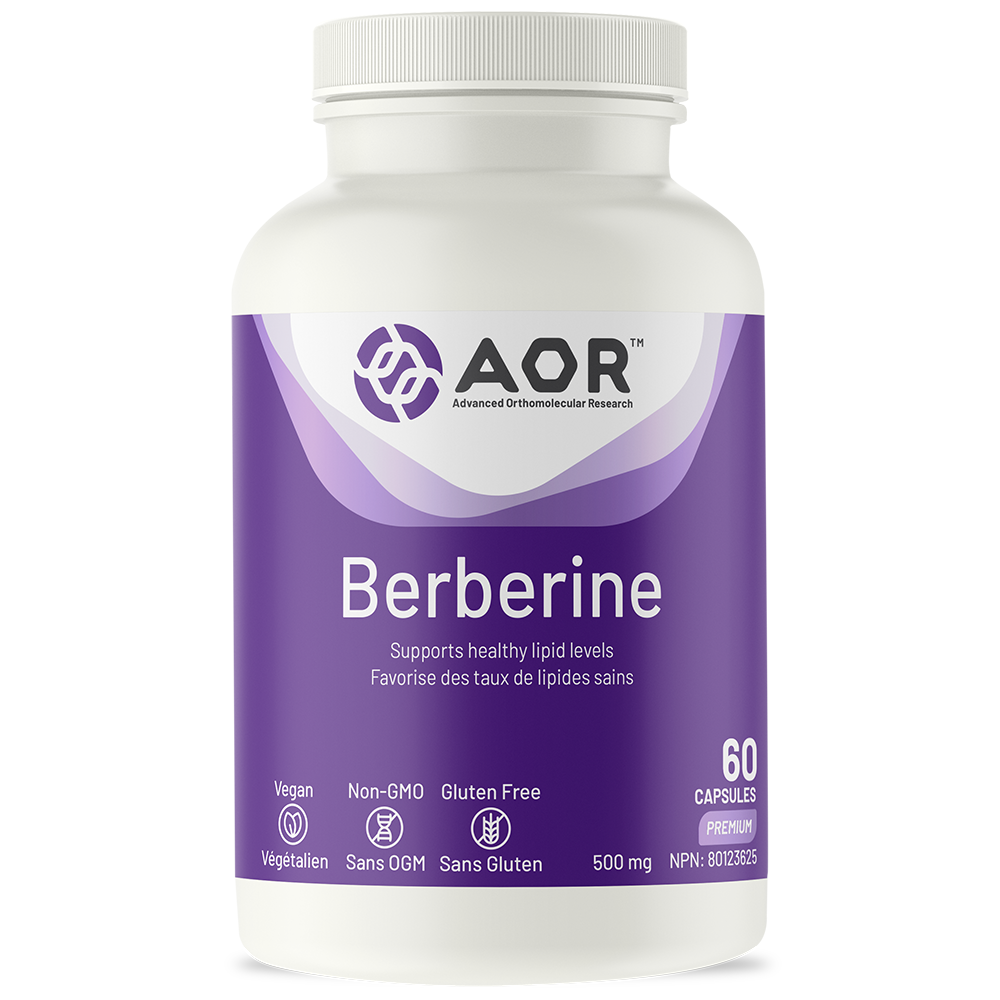Relatively new to the supplement world, berberine is a natural compound found in several plants. Some research has suggested that it can support healthy cholesterol levels, help protect against chronic conditions including heart disease, and can be a great addition to weight control protocols.
Berberine belongs to a class of compounds called alkaloids and is found in the roots, leaves, stems and barks of plants such as barberry and tree turmeric. Although only recently in the spotlight, it has a long history of use in traditional medicine systems, particularly in Chinese, Ayurvedic and Native American medicine.
What are the benefits, and are there risks?
Berberine is a natural compound found in several plants, most concentrated in the Berberis genus. A recent review from 2020 published in the journal Frontiers in Medicine reviewed the existing literature to explore the biological properties and clinical applications of berberine. Use of berberine has been studied in metabolic syndrome, inflammation and oxidative stress, all of which may contribute to high-risk weight distribution (i.e. associated with heart disease and metabolic syndrome high abdominal adiposity).
Berberine supplementation has been shown in preclinical and small scale clinical studies to reduce the risk factors for metabolic dysfunction specifically reducing insulin resistance and balancing blood sugars, reducing bad “LDL” cholesterol. Secondary outcomes included a change in body composition away from the apple body shape (high waist to hip ratio).
While berberine is being positioned as a wonder molecule, it is important to understand that it may have some risks with prolonged unsupervised use. As it is considered an alkaloid molecule, this may cause some toxicity or adverse effects. This can include gastrointestinal upset or liver concerns. It is important to always talk to your healthcare provider to ensure if this treatment is right for you.

How does it work?
A number of mechanisms have been identified for berberines many uses. For blood sugar, the primary impacts are described as follows: insulin sensitization through GLP-1 activation, activation of the metabolic master switch the AMPK, and altering the gut microflora to promote the bacteria that help manage the absorption of sugars.
GLP-1 is a hormone that plays a crucial role in glucose homeostasis, insulin secretion and appetite regulation. GLP-1 is released in response to food intake, especially the presence of carbohydrates in the gut. Specifically, the GLP-1 (glucagon-like peptide-1) secretion and activity in the body is significant for its potential effects on glucose regulation and metabolic health. Studies have shown that berberine can stimulate the secretion and prolong the action of GLP-1 from the intestinal L cells.
Beyond this, berberine may help reduce LDL levels by triggering the increase of LDL receptors on the cells so that less of this cholesterol remains in the blood vessels where it can do the most damage.
• May help lower total cholesterol
• May decrease LDL (bad) cholesterol
• Could increase HDL (good) cholesterol
According to some research, berberine inhibits an enzyme called PDSK9. This leads to more LDL cholesterol being removed from the bloodstream.
New research indicates that berberine may affect the mix of microorganisms in the gut, collectively known as the gut microbiota. A healthy gut microbiota is linked to better metabolic health. Berberine has been found to alter the composition of the gut microbiota by supporting the growth of beneficial bacteria like bifidobacterium and lactobacillus, and suppressing harmful bacteria. This influence can affect key bodily functions including inflammation, metabolism and immune response.
Like all new supplementation, it is important to consult with your doctor and dietitian before taking berberine to ensure it is the right fit for you. Along with a healthy diet and lifestyle changes, berberine could be an excellent addition to your healthcare program.
Facts and information by Dr. NavNirat Nibber, Naturopath Doctor, Senior Medical Advisor at Advanced Orthomolecular Research, in Calgary, AB.

Advanced Orthomolecular Research
3900 12 St NE, Calgary, AB T2E 8H9
1 800-387-0177
Facebook: Advanced Orthomolecular Research
Instagram: @aorhealth
www.aor.ca
















